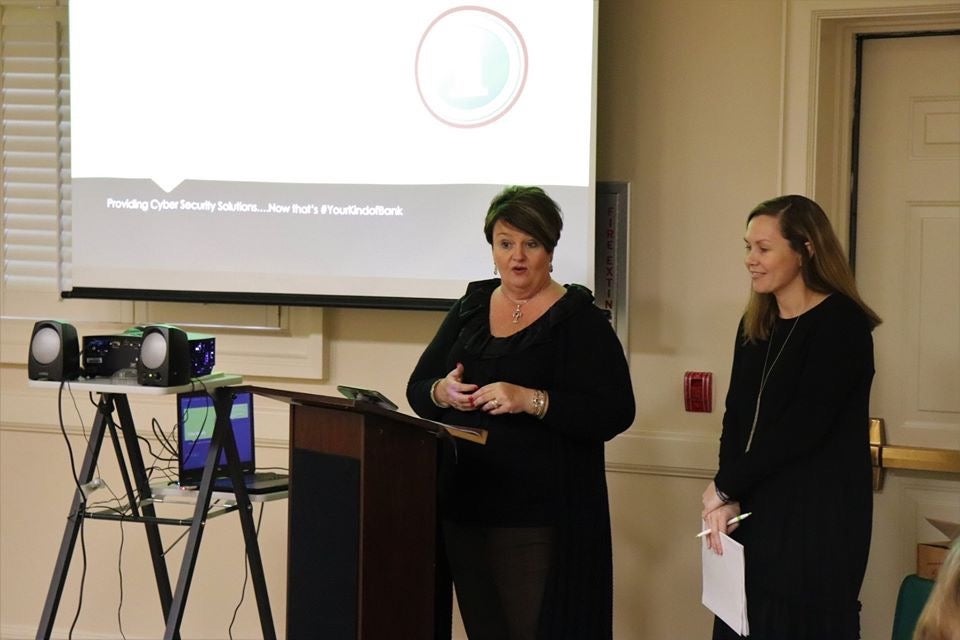Cyber security program warns of dangers on internet
Published 4:05 pm Friday, January 31, 2020

- Lorenda Smith and Stephanie Ivey of First National Bank speak at the libary on Thursday about cybersecurity.
|
Getting your Trinity Audio player ready...
|
Lorenda Smith of First National Bank presented a program on cyber security at the Gilbert H. Gragg Library on Thursday afternoon, where she taught listeners how to be safe on their computer, smartphone and other devices.
According to a study Smith presented, hackers attack a smart device every 39 seconds and 12 adults become a victim of cyber crime every second. However, 95 percent of security breaches are because of human error.
After presenting the study, Smith went through some of the basics people can do to ensure they are not part of that 95 percent statistic.
Smith began by making everyone take out their smartphone and see if they had completed the most recent update. Updates often include fixing “bugs,” meaning a glitch in the program is fixed, making it more difficult for hackers to access or break into the programming code.
Once everyone has ensured their phone is updated, they should then set and update their passwords to make them stronger. While passwords are often encouraged to be eight characters long and include numbers, characters and special symbols, security teams are now suggesting creating a pass phrase that is easy to remember, but would be difficult for a hacker to guess, due to its length.
“Do something that’s not directly related to you,” she emphasized. “Don’t make it your pet’s name or your birthdate.”
While it’s easy to create one strong password and stick with it, customers are encouraged to often change their password; most financial institutions suggest every 90 days creating a new password.
“When the time changes and you change your batteries in your smoke detector, change your password too,” Smith said.
It also is encouraged to make the login password to one’s computer unique and separate from other passwords. By doing this, hackers can only gain access to your computer but none of the other sites with personal information. Sharing personal information on a site can seem secure, however Smith reminded everyone that not every website is legitimate. One of the ways to identify a safe website is to look for a lock at the beginning of the url and https, meaning it is secure.
Phishing scams can also be confusing for many and are used as a way to gain access to private information. Smith pulled up a variety of different emails and had the crowd identify them as real or scam, and explained how to tell the difference.
Phishing emails may sometimes contain misspelled words or have bad grammar, which is an immediate red flag.
“The best thing to do is always go up to the url and click to see what the full link is,” Smith said.
The full link will often not be from the company a hacker is posing to be.
Hackers will not only use the web to gain access to information. They also check mailboxes. Smith strongly encourages people to use an online mobile banking app, instead of having a paper copy of their transactions be mailed to their house. By using an app, people can quickly recognize a discrepancy on their card, and hackers cannot find a routing number or other personal information in the garbage.
“You have to think about that kind of thing,” Smith said. “Remember 95 percent of breaches come from human error, do your due diligence.”
However, when using an online app like a mobile banking app be careful of public Wi-Fi. When on public Wi-Fi, all the information one is putting out there is on the public web.
Finally, Smith suggests wiping out one’s entire phone before donating it to prevent any hacker from gaining access to any old accounts.
While all these suggestions can help prevent human error, it is still possible to be hacked. If you have been hacked or believe someone has gained access to your account, contact Equifax, Experian or TransUnions and examine your credit report.
More Z - News Main





